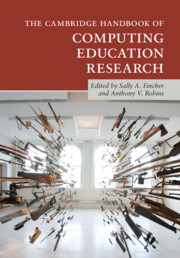Book contents
0 - An Important and Timely Field
Published online by Cambridge University Press: 15 February 2019
Summary
Information
- Type
- Chapter
- Information
- Publisher: Cambridge University PressPrint publication year: 2019
References
Accessibility standard: Unknown
Why this information is here
This section outlines the accessibility features of this content - including support for screen readers, full keyboard navigation and high-contrast display options. This may not be relevant for you.Accessibility Information
- 5
- Cited by
